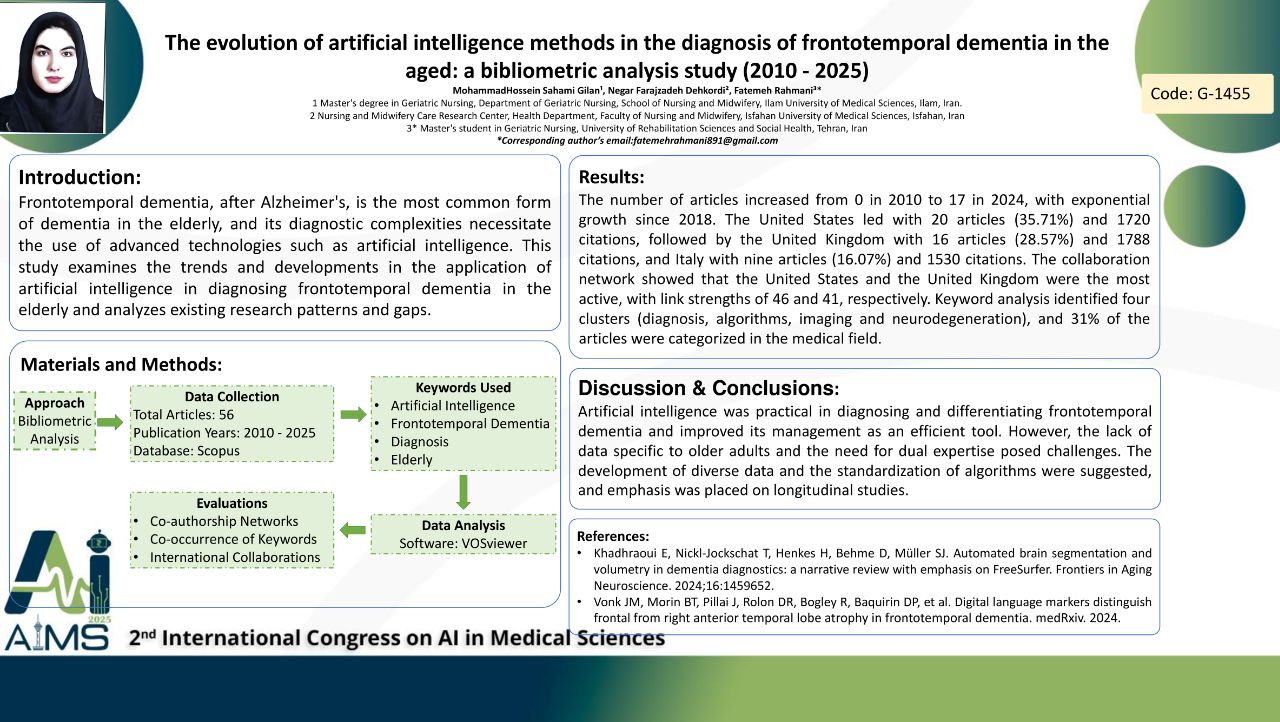The evolution of artificial intelligence methods in the diagnosis of frontotemporal dementia in the aged: a bibliometric analysis study (2010 - 2025)
Code: G-1455
Authors: Mohammad Hossein Sahami Gilan, Negar Farajzadeh, Fatemeh Rahmani * ℗
Schedule: Not Scheduled!
Tag: Intelligent Virtual Assistant
Download: Download Poster
Abstract:
Abstract
Background and aims: Frontotemporal dementia, after Alzheimer's, is the most common form of dementia in the elderly, and its diagnostic complexities necessitate the use of advanced technologies such as artificial intelligence. This study examines the trends and developments in the application of artificial intelligence in diagnosing frontotemporal dementia in the elderly and analyzes existing research patterns and gaps. Method: Using a bibliometric approach, this research collected 56 articles published between 2010 and 2025 from the Scopus database and analyzed them using the VOSviewer software. The search was conducted using the keywords artificial intelligence, frontotemporal dementia, diagnosis, and elderly, and after manual screening, co-authorship networks, co-occurrence of keywords, and international collaborations were evaluated. Results: The number of articles increased from 0 in 2010 to 17 in 2024, with exponential growth since 2018. The United States led with 20 articles (35.71%) and 1720 citations, followed by the United Kingdom with 16 articles (28.57%) and 1788 citations, and Italy with nine articles (16.07%) and 1530 citations. The collaboration network showed that the United States and the United Kingdom were the most active, with link strengths of 46 and 41, respectively. Keyword analysis identified four clusters (diagnosis, algorithms, imaging and neurodegeneration), and 31% of the articles were categorized in the medical field. Conclusion: Artificial intelligence was practical in diagnosing and differentiating frontotemporal dementia and improved its management as an efficient tool. However, the lack of data specific to older adults and the need for dual expertise posed challenges. The development of diverse data and the standardization of algorithms were suggested, and emphasis was placed on longitudinal studies.
Keywords
Frontotemporal dementia, Artificial intelligence, Diagnosis
